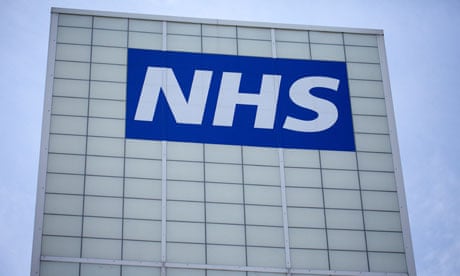Shrinking the size of the state by abolishing the NHS and limiting overseas aid to humanitarian disasters could save more than £200bn a year and pave the way for growth-generating tax cuts, says a leading free-market thinktank.
The Institute of Economic Affairs (IEA), responsible for many of the policies implemented by Margaret Thatcher in the 1980s, said the plans to tackle Britain's budget deficit during the current parliament are not radical enough.
Publishing a report urging a rethink of education, health and welfare, the thinktank said there was public support for plans that would see government spending reduced to less than 30% of national output. Spending peaked at about 50% of gross domestic product during the recession and the chancellor, George Osborne's proposals would see public expenditure stabilise at 40% of national income.
"The recent comprehensive spending review was anything but comprehensive," the report, Sharper Axes, Lower Taxes, said. "Certain departments were omitted from the review altogether. Most other areas of spending were 'salami-sliced'. No coherent, bottom-up analysis of government functions has taken place."
Health and development assistance have been spared from the coalition spending cuts, but the IEA said overseas aid did not help reduce poverty and called for the NHS to be replaced by a system of individual health savings accounts with insurance for "catastrophic events".
The thinktank said its health reforms would save £44bn year and a tougher approach to welfare spending would raise £46.5bn. A further £17bn would come from the defence budget, £12bn from overseas aid and £40bn a year from the sale of state assets. It said the cuts in spending would enable the Treasury to reduce taxes by £7,500 per household.
The IEA's director general, Mark Littlewood, said that given the choice between reducing public spending to 30% of GDP to allow a £7,500 cut in taxes and keeping public spending at 40%, 70% of those questioned by the polling group ComRes favoured lower taxes.
"The coalition should listen more to the British people and less to special interest groups that push for government spending. Lobbying from interest groups can push tax and government spending well beyond optimal levels." Littlewood said.
"This poll makes clear that the public favour a dramatic reduction in the size of government and the right to keep more of their own money rather than surrender it in tax.
"The government needs to adopt a Plan A+. Embracing the sort of proposals in this report would stimulate economic growth, which has remained disappointingly sluggish in the wake of the coalition's unambitious plans so far."

Comments (…)
Sign in or create your Guardian account to join the discussion